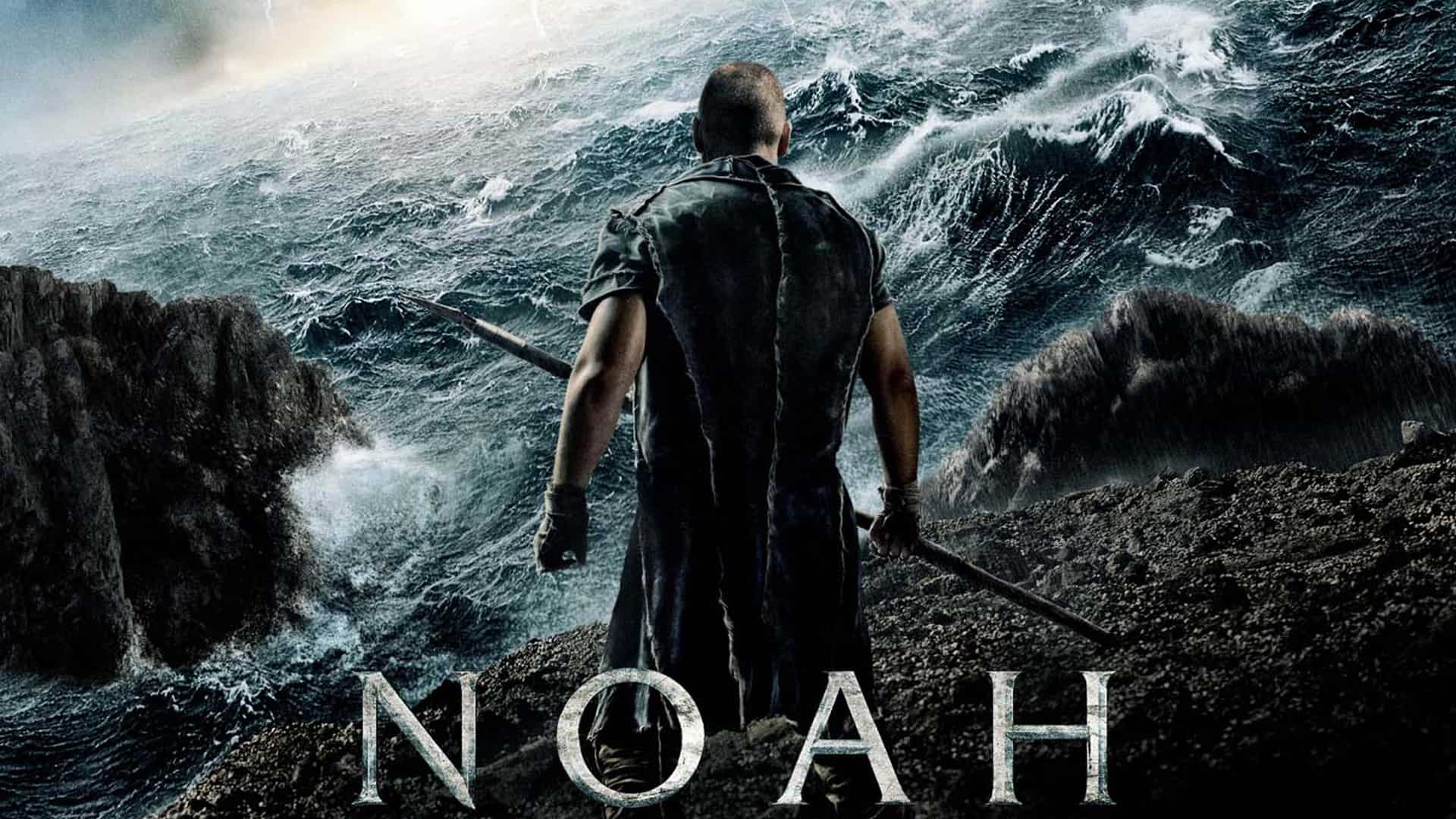
This post was first published in Film & Bible Blog. © Tony Watkins 2013.
Darren Aronofsky is a visionary and ambitious film-maker who constantly grapples with big themes in his work. Noah continues in this line as it explores significant – and very relevant – tensions within humanity: between benevolent care for the environment and greedy exploitation, between duty and self-interest, and of course, between good and evil. Aronofsky, along with co-writer Ari Handel, explores these issues and others in spectacular, epic style in the context of one of humanity’s oldest stories.
For viewers who have only encountered sanitised children’s versions of the story of Noah and the ark, Darren Aronofsky’s film may come as something of a shock. It is dark, powerful, and challenging – which makes it very much more faithful to the biblical text in Genesis chapters 6 – 9. There has been some controversy about Noah in more conservative Christian circles, particularly in the USA, where snippets of advanced information fed rumours that it misinterprets the Bible. But Aronofsky set about making a film that attempts to bring to life what might have happened, rather than one that goes against what the text says:
I wanted Noah’s story to feel fresh, immediate and real. So when my team and I started to imagine how to bring the prediluvian era to life, we threw away all the tropes and returned to the Bible… . We realized that if we listened to the original text we would find a blueprint for a Noah story that was unique and unexpected.[1]
Of course, Aronofsky and Handel could not only base the film on the account in Genesis 6 – 9 since that it only four terse chapters of biblical narrative. The details need to be fleshed out in imaginative ways. Since both men are from Jewish backgrounds, they naturally turned to other Jewish writings – the apocryphal books of Enoch and Jubilees, and the Midrash (stories told by a Jewish rabbis to explain, or fill the gaps in, Old Testament narratives) – that tell the story in a variety of ways. The result is a film that portrays the biblical events, but allows us to reflect on what such an experience would have been like, and what impact it would have had on the man at the centre of the storm: Noah.
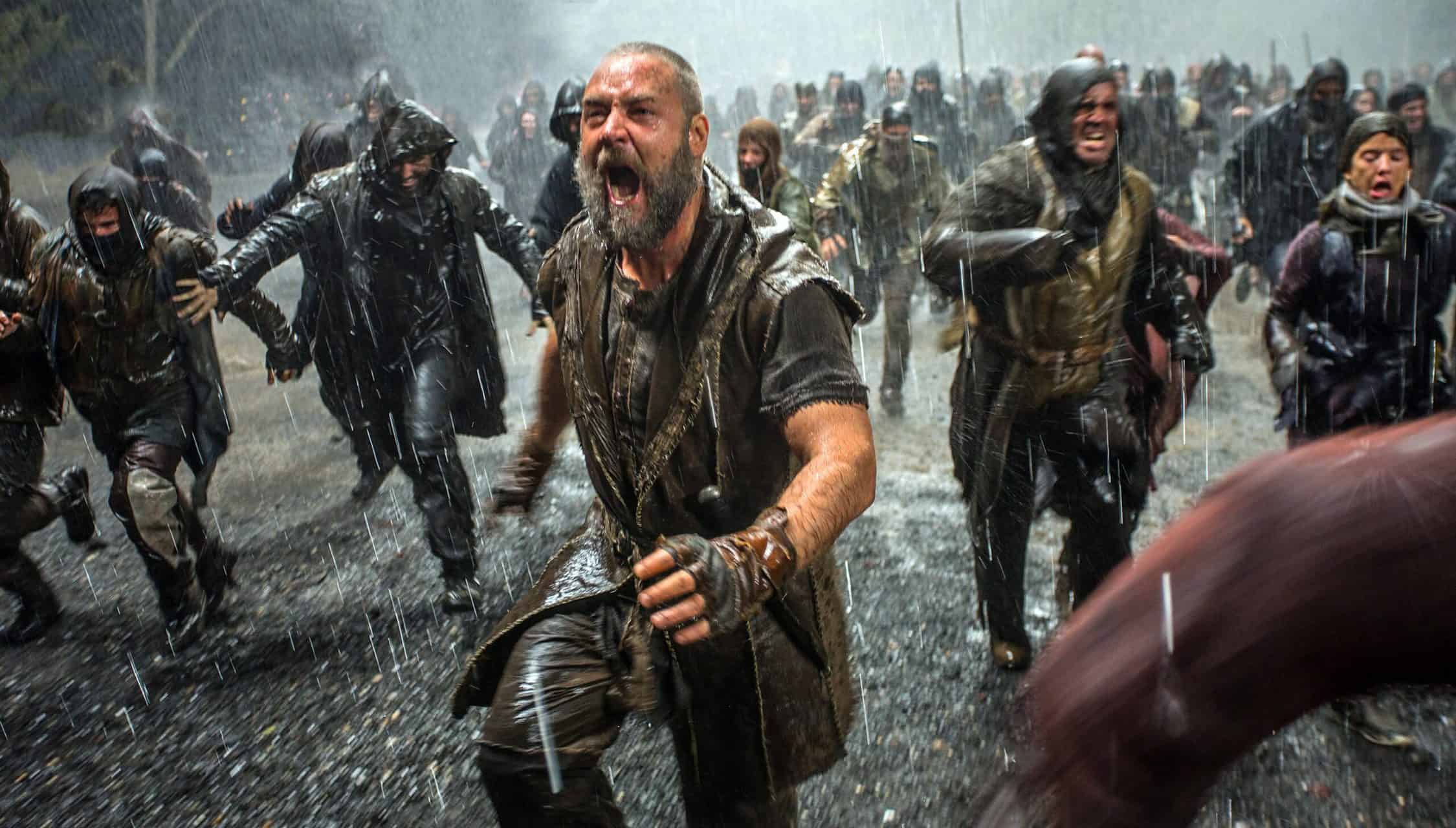
Russell Crowe’s Noah is no kindly old man in flowing robes, with a similarly flowing white beard. He is strong and uncompromising, and his family live what appears to be a fragile existence in a near-desolate land. But they have immense respect for the natural world around them, knowing full well that it all belongs to the Creator, who has charged humanity with caring for it.
Noah is descended from Seth, the third son of Adam and Eve who was born after the oldest son, Cain, murdered his younger brother Abel.[2] Several generations on, the family lines of Cain and Seth are in sharp contrast with each other. In the film’s prologue, we see Noah as a boy about to be given his birthright by his father, Lamech, who pronounces a blessing on him: ‘May you walk alongside the Creator in righteousness.’ But then a band of hostile men appears, prompting Noah to hide while Lamech faces his attacker (who we later discover is Tubal-cain[3]) saying, ‘This is the Creator’s land. What are you doing here?’ Tubal-cain scoffs at Lamech, kills him and takes from the dead man a symbol of the birthright – a snake skin shed by the serpent in the garden before it was taken over by evil. ‘Damned if I don’t take what I want,’ he says.
This encounter graphically reveals how different these two family lines are: the Sethites honour God in everything; the barbaric Cainites ignore him and do exactly as they please.[4] They live out his legacy of violence to the full, bloodthirsty meat-eaters. Noah’s son Shem asks his father why Cain’s descendants eat meat, unlike them. ’They think it makes them stronger, replies Noah. ‘They forget, strength comes from the Creator.’
 Russell Crowe in Noah
Russell Crowe in NoahThe Cainites do appear to be much stronger, however. Far from being an isolated family, Tubal-cain’s people are numerous. The prologue, drawing on the book of Enoch, explains that, after Cain was driven away from God’s presence following the murder of Abel, he was sheltered by a band of fallen angels (the Watchers), who taught him many things and enabled him to build a vast civilisation with cities spreading across the world. But now, the wickedness of his descendants has resulted in the cities failing,[5] causing bands of men to wander around looking for whatever meat they could find – animal or human. It is a compelling portrayal of rampant evil.
Into this context of one faithful family in a world of unrestrained evil, God speaks. Genesis doesn’t tell us how Noah heard from God what was about to happen, and what he must do. In the film, he receives a vivid dream, which he almost seems to have been expecting. The details are not spelt out, but he has a strong foreboding that the Creator is about to unleash devastating judgement in order to wipe wicked humanity from the face of the earth, and that he is to build an ark.
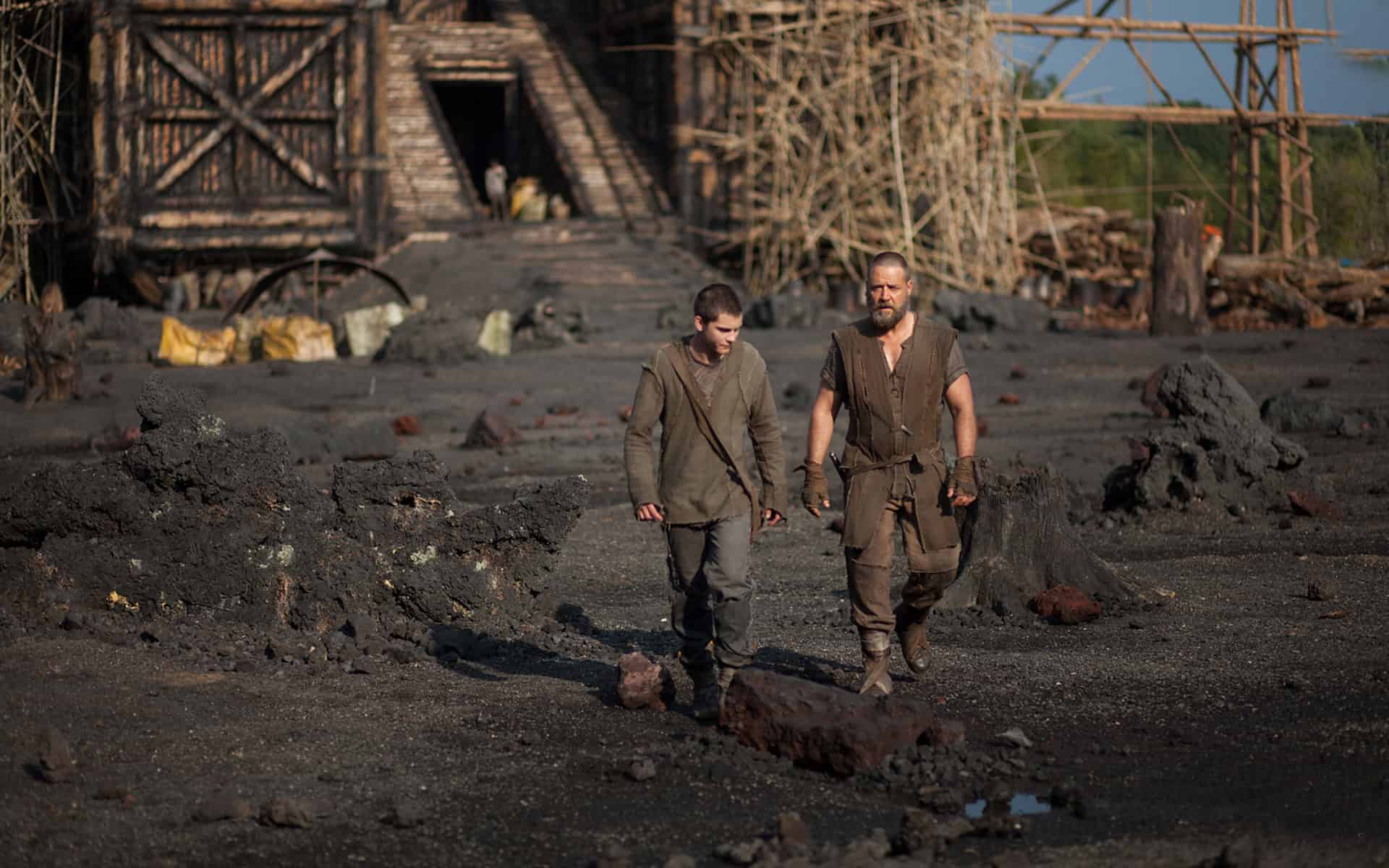 Logan Lerman and Russell Crowe in Noah
Logan Lerman and Russell Crowe in NoahThis is a profoundly difficult moment in the Bible, which is skated over in the watered-down versions with which we are so familiar. Is God really ready to wipe out the entire human race? Ari Handel says:
Consider what might be the most painful part of the Genesis story: a Creator deciding that He must destroy most, if not all, of His own creation. Surely there were children amongst those who were drowned in the flood? Certainly there were plenty of innocent animals beyond the two by two? If so, the deluge must have been about creating a clean slate despite those loses – something that must be painful for a just Creator who loves His Creation.[6]
Genesis is very clear about why the flood happened:
The Lord observed the extent of human wickedness on the earth, and he saw that everything they thought or imagined was consistently and totally evil. So the Lord was sorry he had ever made them and put them on the earth. It broke his heart. (Genesis 6:5–6)
Noah is steadfastly committed to obey his Creator and, after the miraculous provision of a forest to provide wood for his enormous vessel, he begins construction. (For viewers who are only familiar with the story as it is told in the Bible itself, it is surprising that he is aided in this task by the Watchers, but this idea comes from some of the other Jewish writings that Aronofsky and Handel consulted.) Once Tubal-cain and his people become aware of the ark, the tension rises significantly, but not only because of the external threat they pose. There are also rising tensions within Noah’s family. His adopted daughter Ila (Emma Watson) and Shem (Douglas Booth) love each other, but Ila is barren as a result of an injury sustained when her family was attacked when she was a child. She insists that he should have a wife who can bear him children if only this tiny handful of people is to survive the coming cataclysm. Ham (Logan Lerman) is also worried that he will not have a wife by the time they are shut up in the ark.
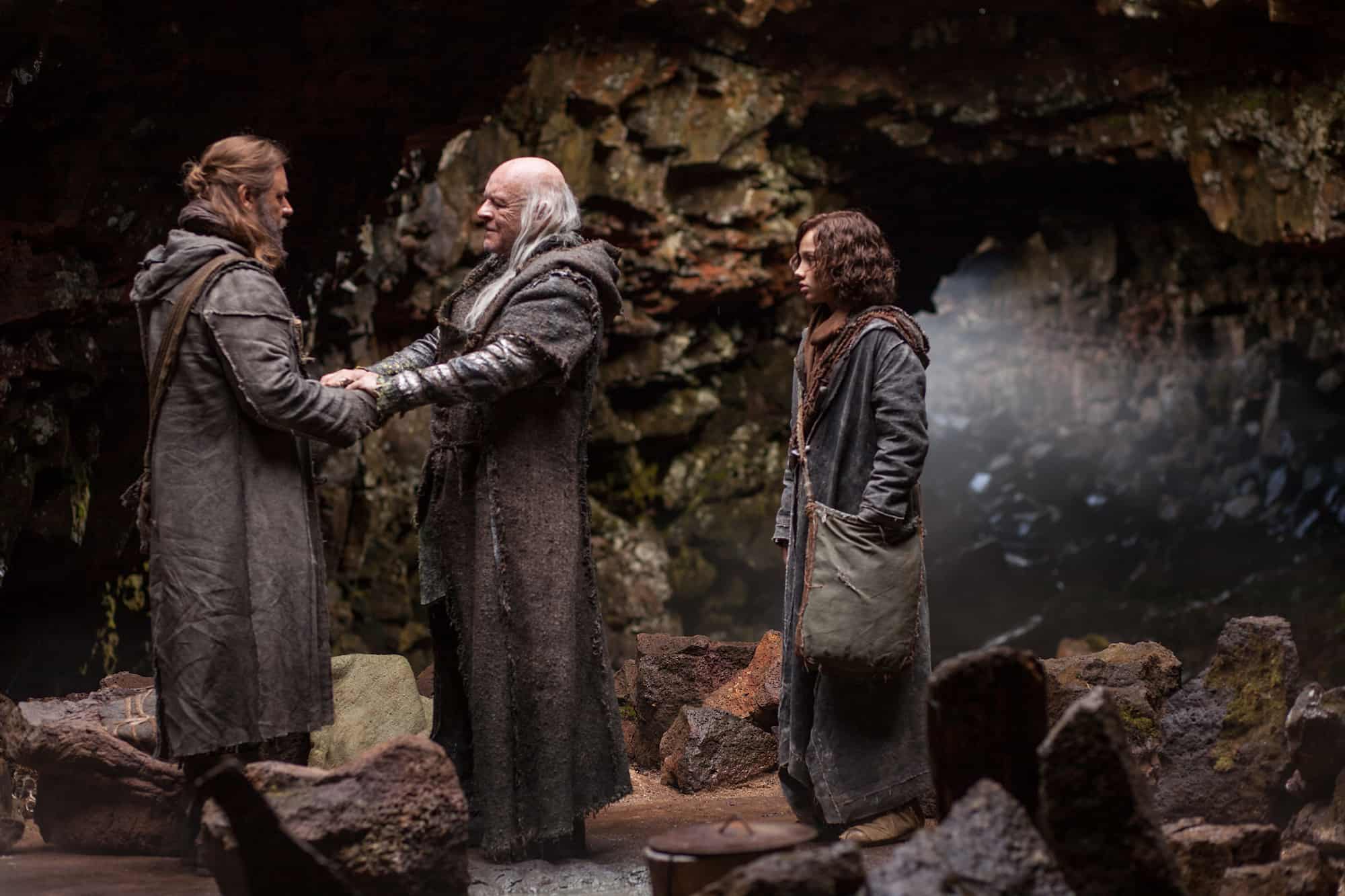
Noah comes to realise that wickedness is not something only found in the hearts of Cain’s descendants, but is also part of him and his family members. Noah concludes that God must want to destroy them too, and that his role is to safeguard breeding pairs of animals and birds in order to replenish the earth once the floodwaters have cleansed it. He reasons that the animals are innocent, but he and his family are not, so God must have chosen him only for his ability to see the job through to the bitter end, and he must nevertheless still be under God’s judgement.
We live at a time in human history when the notion that it is just for God judge human wickedness is not a popular one. When relativism dominates the moral landscape, the idea of wickedness itself is treated with suspicion. Yet moral relativism assumes the absence of God: with no higher being who determines moral law and who calls his creatures to account, who is there to say what is right or wrong? Every moral choice comes down to individual preference, and is at best limited by what is considered harmful for society. But if there is a Creator, and if he made human beings in his image (Genesis 2:27) to reflect his moral nature (among other aspects), then we are morally accountable to him. If goodness is that which is accords with God’s character, then it would mean there really is objective good and evil. For all the relativistic talk about morality, instinctively most people do feel that some moral actions are absolutely wrong: rape, murder, paedophilia, and genocide are morally unacceptable to any right-thinking person. When we hear of some horrific crime, we instinctively long for justice for the victims. But moral obligations require a moral law and a moral lawgiver; they are not abstract ideas. The Bible insists that the morality is based in the character of God who not only has the right to judge his creatures, but will, eventually, ensure that justice is done. Far from concerning us, this should be a reassurance to us.
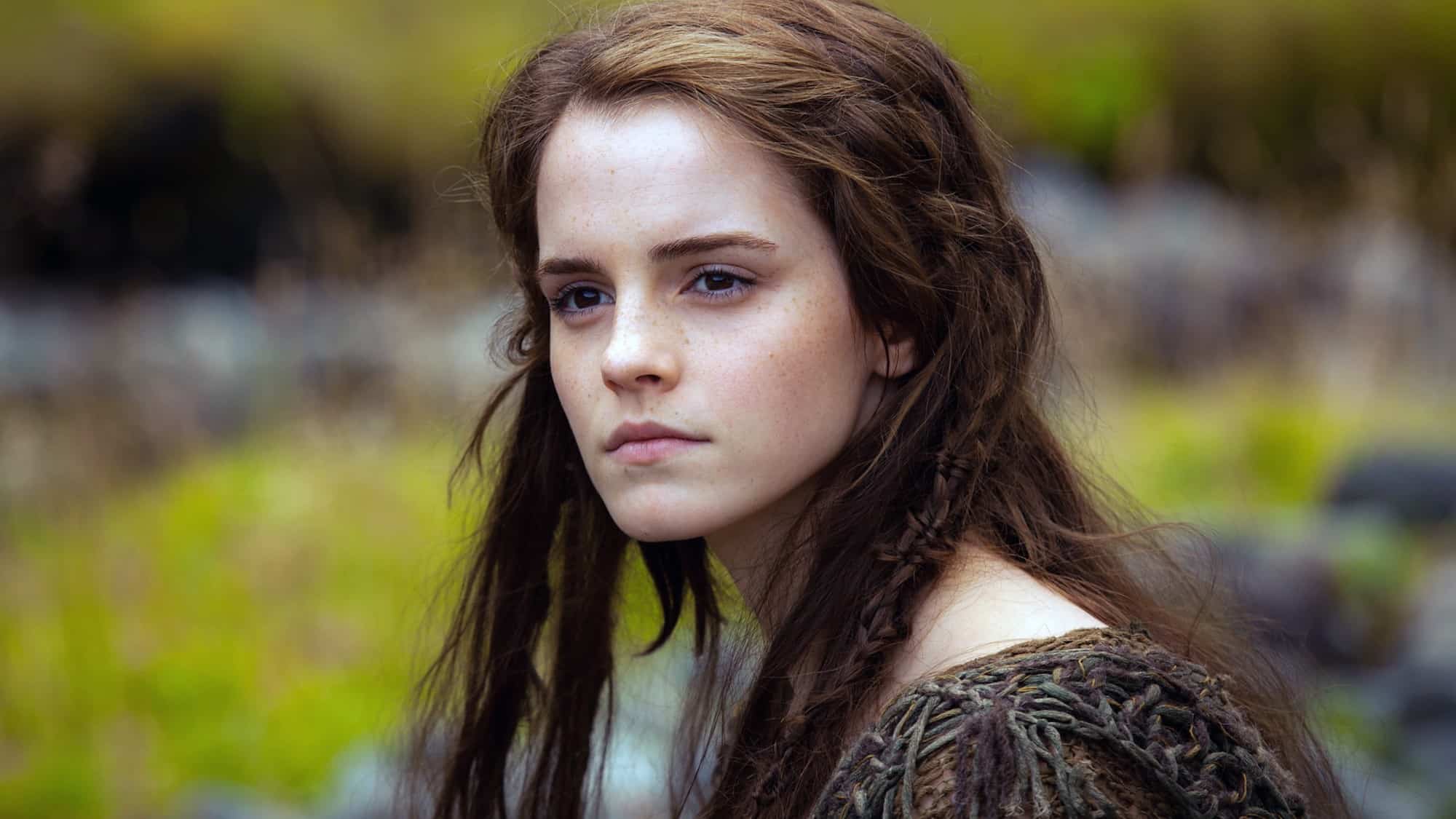 Emma Watson in Noah
Emma Watson in NoahNoah sees the need for justice, and he rightly understands that he is on the wrong side of it. And, in Aronofsky’s telling of the story, Noah fails to understand that there is also mercy to be found in God as well as judgement. All he can see is the need for humanity to be wiped out, and it takes him to a very dark place in which he finds himself in confrontation even with his beloved wife Naameh (Jennifer Connelly). He cannot imagine that God may plan, not simply the reversal of creation in the flood followed by a new start for the non-human creation, but that there should be a new start for his image-bearers too. Aronofsky says:
[If] you’re a parent with too much justice, you destroy your child with strictness, and if you’re a parent with too much mercy, you destroy them with too much leniency. So being a really good parent is about finding that balance, which I think is … in the story of Noah. Actually it’s similar to the story that God goes through; at the beginning of the story of Noah, he wants justice, and by the end he finds mercy through the rainbow, and grace. And so it was that balance that we were really interested in.
And since Noah in the story in the Bible doesn’t really have much of a character arc, or much of a character at all, but he was defined as being ‘righteous’, we decided to take those themes and sort of apply them to the character of Noah, a character who starts off with wanting justice for what man has done to man and what man has done to the planet, and to try and learn mercy over the course of the film. And that’s how we decided to structure the entire film.[7]
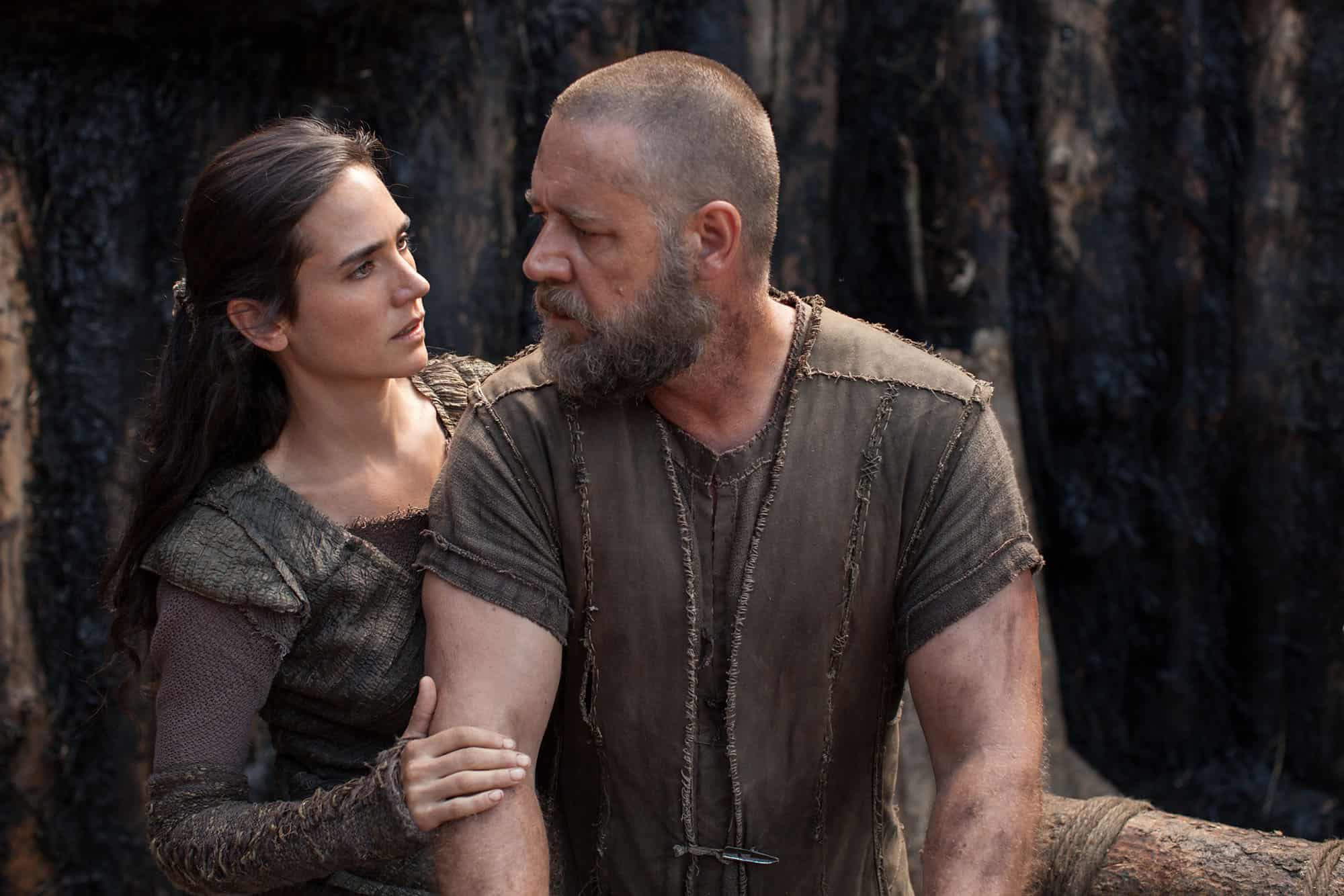
Noah cannot imagine that he could be the recipient of God’s mercy, not realising that it depends on God’s grace, not on whether he deserves it. He and his family are rescued, not merely for the sake of the animals, but for their own sakes. God tells him that the rainbow is to be a reminder of his mercy (Genesis 9:12–17). Though Noah’s family are rescued, they are not transformed, and the story in Genesis very quickly returns to one of human wickedness again. As Aleksandr Solzhenitsyn famously said, ‘The line dividing good and evil cuts through the heart of every human being.’
What hope, then, for humanity since God remains morally pure, yet human beings continue to both bear God’s image and to express our rebellion against him in countless acts of self-centredness? Both Old and New Testaments are clear that the day will come when God will bring final judgement on the world. The apostle Paul says that God ‘commands everyone everywhere to repent of their sins and turn to him. For he has set a day for judging the world with justice by the man he has appointed, and he proved to everyone who this is by raising him from the dead’ (Acts 17:30–31). Paul is speaking about Jesus Christ, the Son of God, who willingly took the full force of judgement on himself by dying on a Roman cross. The apostle Peter says that, ‘Christ suffered for our sins once for all time. He never sinned, but he died for sinners to bring you safely home to God. He suffered physical death, but he was raised to life in the Spirit’ (1 Peter 3:18). Paul and Peter, the other apostles and Jesus himself, understand that we deserve God’s judgement but that Jesus took it for us, if we are willing to accept it in faith. Noah was far from perfect, but he responded to God in faith and was rescued. We too can be rescued from God’s judgement by responding in faith to Jesus, God’s rescuer. Those who do so will one day live in, not simply a restarted creation like Noah, but a renewed and purified creation – a world in which wickedness will never be experienced again.